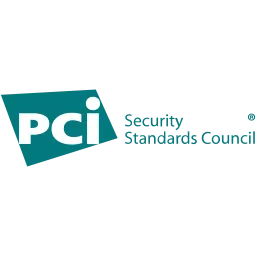Gulf Business: Innovation in Insurtech: The case for financial inclusion

Michele Grosso explains how technology can be put to use to help insure low-income populations
IN LOW-INCOME POPULATIONS, basic insurance can often mean the difference between ending up on the streets or having a safety net when an unexpected crisis strikes.
Many in developed countries do not need to give health, life or accident insurance a second thought, but figures from the International Labour Organisation show that 55 per cent of the global population are not covered under a social protection system.
Why is this a problem? Because financial inclusion – access to financial products and services such as insurance regardless of income level – is fundamental for vulnerable groups to combat poverty and inequality at every stage of their lives. Access to life insurance can make all the difference for a breadwinner who is exposed to occupational hazards and supporting his or her family back home.
Similarly, unexpected hospital bills can easily drive individuals to personal bankruptcy, and those who lose their possessions in fires and floods are often not able to easily rebuild their lives without some form of protection.
Unsurprisingly, the insurance protection gap is widest in emerging markets, where only 3 per cent can access or afford insurance. In the GCC region, one out of two residents is a migrant worker, and consequently migrant insurance is an increasingly important issue.
Unsurprisingly, the insurance protection gap is widest in emerging markets, where only 3 per cent can access or afford insurance. In the GCC region, one out of two residents is a migrant worker, and consequently migrant insurance is an increasingly important issue.
So what is preventing migrant workers from tapping into insurance?
The challenges are manifold, but a major hindrance to reaching the uninsured is the high costs associated with conventional insurance models, due to outdated administration processes and expensive human distribution channels. For example, the people in geographically-remote areas are often underserved due to a lack of physical access to insurance brokers.
Other barriers include the lack of relevant products, low awareness levels by, and inadequate access to, low-income groups.
Last year, Democrance conducted a study, entitled Lifestyle and Attitude of Workers within the Low-Income Group in the
UAE, to understand the needs and wants of low-income migrant workers in the UAE. We found that 43 per cent of respondents regard life insurance as vital, and yet eight in 10 are uninsured due to the high premiums and lack of information. More than a third of respondents worry about job loss and being unable to support their families back in their home countries. These are concerns and risks that can be addressed by the protection that insurance offers.
Increasingly, and because of government initiatives such as the introduction of mandatory health insurance, the industry is looking for ways to further financial inclusion and the democratisation of insurance. In particular, the advent of new Insurance Technology (InsurTech) can significantly reduce the costs of selling and servicing insurance policies, boost efficiencies and accuracy, and help unlock new customer segments that were previously not economically-viable.
Increasingly, and because of government initiatives such as the introduction of mandatory health insurance, the industry is looking for ways to further financial inclusion and the democratisation of insurance. In particular, the advent of new Insurance Technology (InsurTech) can significantly reduce the costs of selling and servicing insurance policies, boost efficiencies and accuracy, and help unlock new customer segments that were previously not economically-viable.
New solutions are on the rise, ranging from the widespread use of data analytics to inform insurers of customers’ needs and behavior patterns, to the introduction of smart sensors to help monitor and collect real-time data to generate more accurate pricing and tackle insurance fraud. For lowincome populations specifically, innovation can be as straightforward as utilising mobile technology to allow customers to easily buy, use and make claims on their mobile phones, giving even unbanked individuals the opportunity to benefit from insurance.
In short, technological advancements have the power to drive down costs and further reach. While there has been a lot of discussions about what innovation can do to boost productivity and the bottom line, I strongly believe that technology is without purpose unless it serves humanity.
Many of the issues that we face today, enshrined in global commitments such as the Sustainable Development Goals 2030, are incredibly complex and will require multi-stakeholder cooperation.
To really make insurance affordable for all, technology providers and insurers need to join hands with distribution channels accessible to low-income populations. While I am not suggesting that technology alone holds the key to solving all of the world’s pressing issues, I am confident that it is in our power to ensure basic social protection systems are in place for those who need protection most but can afford it least.
To really make insurance affordable for all, technology providers and insurers need to join hands with distribution channels accessible to low-income populations. While I am not suggesting that technology alone holds the key to solving all of the world’s pressing issues, I am confident that it is in our power to ensure basic social protection systems are in place for those who need protection most but can afford it least.





